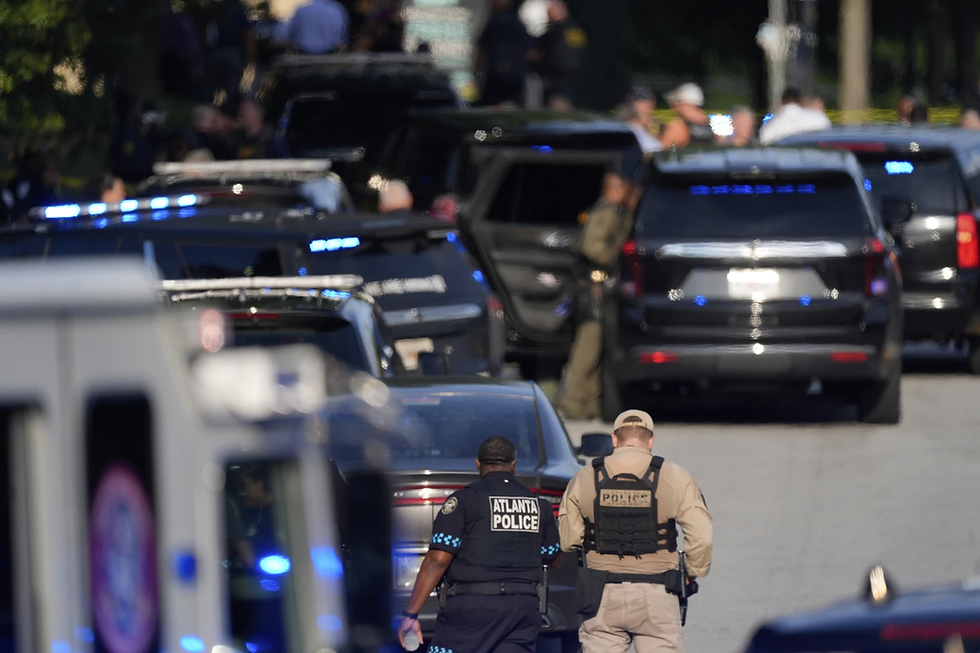A shattered sense of safety, the Atlanta CDC shooting that claimed a young officer’s life
- Aug 10, 2025
- 3 min read
10 August 2025

On August 8, 2025, a quiet Friday afternoon in Atlanta was torn apart by a burst of gunfire that echoed across the gleaming façade of the Centers for Disease Control and Prevention headquarters, piercing the security of one of the most trusted institutions in American public life. In that moment, scientific researchers huddled inside, a CVS pharmacy across the street was thrown into chaos, and one courageous officer responded to the scene, never to return home.
The man behind the violence, later identified by the Georgia Bureau of Investigation as thirty-year-old Patrick Joseph White of Kennesaw, unleashed a spray of bullets at the CDC, striking at least four of its buildings and shattering the illusion of invulnerability that surrounds our public health infrastructure. Armed with five weapons, including a long gun, he first tried to breach the CDC campus, only to be turned away by security; his anger rerouted, he sped across to the pharmacy where he continued his rampage, leaving behind bullet-pocked windows and stunned civilians.
Responding swiftly, the DeKalb County Police arrived, only to find their own ranks depleted by tragedy: Officer David Rose, a 33-year-old former Marine and recent father with another child due, lay mortally wounded, his life extinguished in the line of duty while confronting senseless violence.
Details remain intertwined with sorrow and speculation as authorities investigate what drove White to such extremes, but his father has provided one troubling clue: his son blamed the COVID-19 vaccine for plunging him into depression and suicidal thoughts, a fixation that worsened after the death of his dog and grew into a consuming paranoia.
This motivation, both idiosyncratic and emblematic of deeper fractures in our social discourse, underscores a chilling truth: misinformation can be a lethal force when it takes root in the mind. Vaccine-related conspiracies are once again under scrutiny, especially given White’s fixation and the timing of his rampage at a center tasked with keeping the nation healthy.
Staff at the CDC were not spared emotionally; employees were instructed to work remotely, remove agency insignias from their vehicles, and avoid the campus until security could be re-evaluated and trauma could be addressed. The union representing CDC workers AFGE Local 2883 immediately demanded that federal leaders, including Health and Human Services Secretary Robert F. Kennedy Jr., offer unequivocal condemnation of vaccine misinformation, asserting that rhetoric demeaning public health efforts has undermined the safety of scientists and staff.
In the hours and days that followed, Atlanta officials weighed in: Mayor Andre Dickens and Governor Brian Kemp lauded the rapid response of law enforcement, and Georgia’s Democratic legislators used the tragedy to renew their calls for more serious gun-control measures.
Meanwhile, tributes for Officer Rose poured in. A U.S. Marine veteran with a legacy of service rooted in his family his mother long cared for patients at Emory Hospital Rose represented both the personal and communal cost of violence. Fellow officers, neighbors, and public figures remembered his courage, his devotion to duty, and his role as a husband and father. Funeral arrangements had yet to be finalized, but the heartbreak was already being felt deeply.
Though the shooter is dead, the reverberations of this attack continue to ripple outward. Bullet holes across the CDC campus remain as tangible reminders of the fragility of the institutions we take for granted. The shooting forced a campus lockdown, disrupted critical disease-control operations momentarily, and left many questioning whether public trust has eroded just as dangerously as physical security. As investigators piece together evidence, the unanswered questions about motive and method demand clarity, even as emotional wounds demand compassion.
This is not just a story about one man’s rampage or one officer’s tragic end, it is a story about what happens when fear, grief, and misinformation converge with access to weapons, and it is a story about the systems that must protect not only our physical well-being but also our collective faith in institutions dedicated to preserving it.
The toll of that afternoon in Atlanta reminds us that our societal resilience depends not just on readiness to respond, but on the integrity of our discourse, the respect we afford public health, and the safeguards we erect against the most dangerous weapon of all: falsehood wrapped in fear. As the city, the CDC, and the nation grapple with the aftermath, the call is clear: safeguard not just buildings and lives, but the truths that hold us together in moments of crisis.



Comments